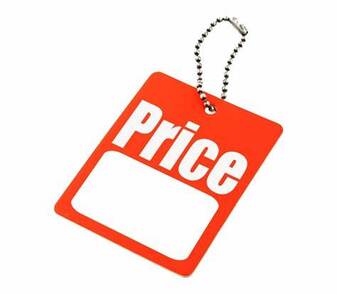 Pricing your book – is it an art or a science? I’m not asking you to pick a side; I’m only offering an opinion. Take it or leave it, but before you make up your mind, you have to understand two things. First of all, there is the economics of pricing. Then there is the psychological aspects of pricing; what assumptions do people make when they see a price tag on a product? Let’s start with the economics of pricing. If you are a big publishing house, there is a lot you have to pay for before the product (book) goes on sale. First off there are the publishing rights for the book – what the author wants for selling his or her soul to Mammon. Many new authors won’t get that, they’ll just be offered royalties based on sales. But a bestselling author can charge a hefty fee up front for giving a publisher exclusive rights to their next book - or even several books.  Then there is the cost of editing and proof reading in order to get the book into the best possible version of itself. Add to that cover design, printing and distribution and the publisher has already invested a considerable amount of money that must be recouped. Then there is the cost of marketing, because nobody is going to buy a book if they don’t know it exists. Finally, there are all the “back office” costs that must be recouped: HR, accounting, IT, rent, utilities, etc. What are known as “overheads” but without which no business functions efficiently. Put that all together and there is a lot of money to be recovered and publishers want their money back quickly, because they have shareholders who want a dividend at the end of the year. Consequently, publishers price high because they know that once a book has been out for a while, people lose interest in it because there are other, newer titles coming out all the time, so they must cover their costs and generate a profit in the shortest possible time.  All that marketing is aimed at getting the book into the best-seller list as quickly as possible, so that sales gain some “momentum”. Readers are more likely to buy a book if they think that a lot of other readers have already bought it and that is what the best-sellers list tell them. And there was you, thinking that the best-seller list followed sales, when they are really leading them. So, when you see a book with a list price of, perhaps, £20 ($22) for a hardback, £13 for a paperback and maybe £12 for the Kindle version, all that stuff is what you are actually paying for – not the words on the page. The author will probably receive less than 10% of the sale price for each book and their agent takes a cut of that, reducing it further (are you still sure you want to be published by a big publishing house?).  But you are an “Indie” author. You don’t have all those costs to meet before your book goes on sale and you don’t have to recover them quickly in order to satisfy shareholders. You can charge what you like. Therefore £5 for a Kindle version and maybe £8.99 for a paperback doesn’t seem unreasonable. You aren’t greedy – so as long as you make some money from your book, you are happy. Well, you may need to rethink that a little bit. You really need to market your book if you want it to sell and if you want to sell more than a handful of copies, you may need to spend some money on marketing. That means pitching your price at a level that will allow you to cover the marketing cost. Either that, or you will have to settle for a smaller slice of the cake. 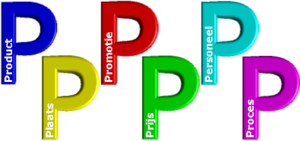 But what about the psychology of pricing? What does the reader infer from the price at which you sell your “product”? Unsurprisingly, there have been books written on the subject. I’m not going to name any as I haven’t read them, so I don’t know if they are any good. But if you are interested, Google “Psychology of book pricing” and they’ll show up in the results. But I did find this blog by Thomas Umstattd Jnr, written in 2020. For a start, Umstattd reminds us that price is so important that it has been included as one of the “P”s of the marketing mix. That means it has to be taken seriously as a subject in its own right.  But the real issue on book pricing is what the reader compares the price to. Let’s imagine that it takes 10 hours to read a book. What else could the reader do for 10 hours, and how much would that cost? That is the comparison that readers make when they buy a product. They mentally say to themselves “If I spend my money on this, would it give me as much fun as spending my money on something else?” This is called “anchoring”. They anchor the price they are willing to pay to read your book against the cost of another type of entertainment (or another product) and form an opinion on how good a bargain it is by comparison. If they are browsing books on Amazon or in a bookshop, you are already halfway to winning the sale, but there is still a choice to be made – your book or someone else’s. That suggests that the lower the price you set, the better comparison and the more books you will sell.  But, of course, the anchor point is only part of the story. Because you have to tell your readers that, whatever comparison they are mentally making, your book is going to represent better value. You have to guide them into making that decision because, otherwise, they may conclude the opposite and not buy your book. Umstattd describes a number of ways you can use your marketing ‘copy’ to influence readers into perceiving that your book represents good value for money. I won’t repeat them here but, intuitively they seem to be good suggestions. But readers don’t just want something to read, they want to read a “good” book; in other words, they want quality. The price should indicate to the reader that they are getting that. It means that setting a low price isn’t always a good strategy.  But at the same time, readers will want someone else to tell them that your book is good, so the reviews have to justify the price. If you are only getting 3 star (or lower) reviews, then you can’t charge a premium price for your book because readers won’t believe they are getting “quality” because other readers are saying they aren’t. If you aren’t getting any reviews at all, then you are really in trouble. And if the reader is paying a higher price for the book thinking it is a quality product, then the content has to match the price. It goes without saying that the story has to be excellent. It also has to be well edited, free from typos and grammatical errors and the cover design has to be more than just the basic offerings chosen from the KDP menu. If they aren’t getting that interior quality, the chances of selling other books to the same reader are slim. There is a way of making money by setting a low price and that is to write a lot of books. There are readers who will accept a loss of quality (even in the storytelling) in return for a cheap read. Making 10p a copy on 5,000 book sales is more profitable than making £1 per copy on 100 sales. And you get the bonus of there probably being more reviews posted about the books. 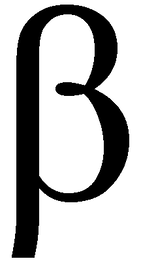 But that is a decision that you have to make for yourself. But you don’t have to make it blind. If you have beta readers, one of the questions you can ask them is how much they would have been prepared to pay on Amazon to read the book if they’d had to purchase it. You will get a range of responses, but you can average them out to give you an indicative price. This blog, on the AuthorImprints website, also takes a look at how to price your books and offers some indicators. One thing seems clear, if you are just starting out, selling your book cheaply in order to generate reviews seems to be a recommended strategy. Once your books gain in popularity and gains positive reviews, you can always increase the price to improve your royalties.  Then there is the 99p (99c) “special”. KDP allows you to reduce the price of your book for up to 5 days, providing it is subscribed to KindleUnlimited. That can be used, in conjunction with advertising, to generate sales because people are more inclined to say “why not give it a try?” at that price. This is especially good if you write a series of books. By heavily discounting the price of Book 1 of the series, people are more likely to by Book 2, 3 etc if they enjoy it. And you have nothing to lose, because if your book isn’t selling then reducing the price makes no difference because 100% of nothing is still nothing. And, finally, there is the “freebie”. I’m not talking about giving your life’s work away for free, just letting people have a taster of what they could get if they buy your life’s work. The freebie is usually a prequel or other introduction to the main series of books. Giving it away for free is a way of generating interest in the main series. But be warned: the freebie must be of at least the same quality as the full book, because even if people are getting it for free, they will still be judging you as an author and you can’t risk that judgement coming back negative. But if the reader likes your freebie, they may buy the book and give it a try. I can say from personal experience that I have bought books off the back of free ones. If you have enjoyed this blog or found it informative (hopefully both) and want to be sure not to miss the next edition, just sign up for our newsletter by clicking the button below. And we’ll even send you a free book for doing it.
0 Comments
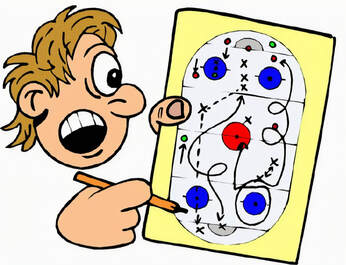 In last week’s blog we discussed marketing for the Indie author and, in particular, constructing a marketing plan. The blog was getting pretty long, so I didn’t say all I wanted to say at that time. What I did say was that the content of your plan lay in the old Rudyard Kipling quote “I keep six honest serving men (they taught me all I knew); Theirs names are What and Why and When and How and Where and Who.” Putting those words into questions helps you to decide the content of your plan: what you will say, who you will say it to, when you will say it etc. That is all good, but some people have never constructed any sort of plan at all, so this blog is aimed at them. How do you get from that Kipling quote to selling more books? For those of you who have written so many plans it is you who should be writing this blog, please feel free to tune out. Maybe go and browse our catalogue, which can be found on the ‘Books’ tab of this website. For everyone else, are you sitting comfortably? Then I shall begin.  The first thing you need when creating a plan is an objective, goal or desired outcome. Call it what you like, but it is a description of where you want to be by the time your plan has been delivered. For Indie authors this is usually quite simple to define – your goal is probably to sell more books. You even have a readymade measurement there to tell you if the plan is working – the number of books that you are selling after you have delivered the plan compared to the number you are selling now. But that is a big goal to achieve and you will need to do a lot of work to achieve it. What you also need to know is if your plan is taking you in the right direction. It might take you 3 months or more to achieve your goal and that is a long time to wait to find out that your plan isn’t working and needs to be re-thought. 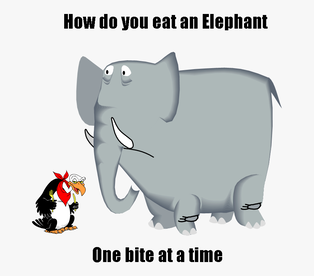 So you have to create sub-objectives, which you can tick off along the way to make sure you are staying on track for success. Believe me, if each step is successful, then the final outcome can never be in doubt. And if some of the sub-objectives still seem quite daunting, you can break them down even further. Remember the old maxim: “How do you eat and elephant? – One bit at a time.” (apologies to vegans). You may even want to run a few “pilot schemes” or “trials” to see if what you plan to do is actually going to work on a larger scale when you set the whole plan in motion and those trials also become sub-objectives.  Build the walls before you try to put on the roof. Build the walls before you try to put on the roof. One of the things of which you have to be careful, is that you lay out your sub-objectives in the right order. For example, if you were building a house, “Put the roof on” wouldn’t appear in the plans until after “dig foundations” and “build walls”. You may need to spend a bit of time making sure your marketing plan is constructed in the right order, just like you would build a house. 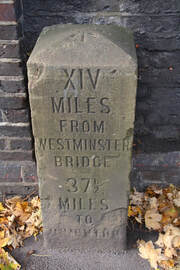 Last week we talked about getting some training in social media marketing, so that might be an early sub-objective in your plan. We also talked about writing your marketing messages, so trying those out on people might be another sub-objective. But basically, all you are doing is breaking down one very big and daunting objective into several smaller, less daunting tasks, then laying them out in a logical order. In project management we call the completion of sub-objectives or tasks “achieving a milestone” and it feels very rewarding to reach each milestone and tick it off your plan. But, just like real milestones, you have to know where they are, which means having some sort of measurement of achievement for each task. 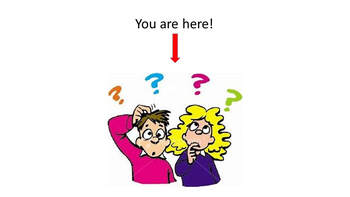 After all, there is no point in knowing “you are here” if you have no idea what “here” looks like. In the same way, you can’t know you have reached a milestone if you don’t know what a milestone looks like. A written description of what it will look like is the best way of recognising a milestone. For example, a description of the messages you want to send out about your book might read: “Write 7 sentences/paragraphs of up to 140 characters* that provide a clear indication of the book’s content., grammatically correct, correctly spelt and tested on sample readers.” You can see from the description that “quality” checks are built in. That is the sort of “product” or task description you could write for each sub-objective, so you will recognise your milestone when you get to it.  But all plans are meaningless if they don’t have resources assigned to them. A plan without the resources to deliver it is just a wish, a hope or a dream. These resources can include money, to pay for things such as advertising. But a far more important resource is information. You have to know the answers to those who, what, why etc questions you asked, so that you can apply your other resources in the right place at the right time. So one of your objectives is almost certain to be information gathering, or research as it is more commonly known. This will result in you not wasting your other resources (such as money) on the wrong activities. 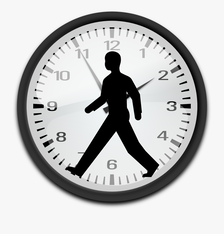 Time is another major resource. None of this stuff will do itself. Yes, I know, you’re a writer. You don’t want to have to spend all your time doing marketing. Which makes it all the more important that you don’t waste what time you are willing to expend on marketing, doing the wrong things. There is an old saying in quality management “Isn’t it amazing how people who don’t have time to get things right the first time they do them, always have plenty of time to correct their mistakes.” And if you are spending money, you can’t afford to spend even more money correcting mistakes by getting things wrong first time. So, all that research is critical to you avoiding getting things wrong the first time you try them.  The final resource I’m going to talk about is knowledge, which I have already touched on earlier. If you don’t really know what you are doing, you are going to waste your other resources on getting things wrong. “Trial and error” may teach you a lot, but it is an expensive way to learn. Invest in yourself, even if the investment is just time spent doing a free on-line course. We’re not talking about studying for a 3 year business management degree here, just a few hours learning the basics of social media marketing and trying out a few ideas to get a feel for what is right for you and your books. And once you have your marketing plan – you can use it again and again, refining it each time as you learn what works best and what isn’t working so well. Because you will have to keep repeating your marketing activity, because marketing messages soon fade from people’s consciences and you will always be looking for new readers who will buy your books, because nobody buys the same book a second time (except as a gift for someone else or because they forgot they owned it already). * We know that Twitter now accepts posts of up to 280 characters, but you need to make an allowance for the inclusion of a link to the book’s sales page and for hashtags. And, of course, character count isn’t an issue for Facebook posts, though people rarely read beyond the first few lines. For Facebook, think “elevator pitch”. If you have enjoyed this blog, or found it informative, make sure you don't miss future editions by signing up for our newsletter. We'll even give you a FREE ebook if you do.  A cautionary tale for anyone who uses Amazon to publish their titles in paperback, whether independently or through a publisher. If you have only ever used KDP then there shouldn’t be any problem, but for anyone who uses, or has used, a third-party printing service, this could be a bear trap waiting for you. If you are a small publisher, then this is definitely something of which you should be aware. Now, as we know, Amazon are a huge global internet supplier, not just of books but for pretty much anything. If they were a High Street (or Main Street if you prefer) outlet they would be present not just in very High Street in Europe and North American, they would be present in villages in the middle of Borneo that no outsider has ever seen. That’s how big they are. So, you would think that they would have simple processes in place for the resolution of issues. You would be wrong to think that. Several of the authors we represent used to publish through another small publisher. I’ll call them Fabulous Publishing for the sake of anonymity. A couple of years ago the owner of Fabulous Publishing decided he didn’t want to be a publisher anymore and closed his company down. As part of the close-down, Fabulous Publishing unpublished all the titles they had listed on Amazon (and on other etail sites). Fabulous Publishing also returned the publishing rights for the titles to the authors, so they could go elsewhere to be published, if they wished. Some of those authors went to a publisher we’ll call Selfishgenie Publishing, because we don’t require anonymity. Yes, we signed them and published their books, both as ebooks and as paperbacks. But Fabulous Publishing used a third-party printer to print their paperbacks. We’ll call them Wonderful Printing. They are a big company; they know what they are doing. When Fabulous Publishing closed down, Wonderful Printing contacted Amazon and told them that the relevant titles were no longer available as paperbacks through them and asked Amazon to “de-list” them. You would think that would be the end of the matter – but if it was, you wouldn’t be reading this blog because I would have no story to tell. "And that is where we hit our first speed bump." You will be familiar with Amazon Marketplace. This is where small traders sell goods using Amazon’s platform as their sales channel, for which Amazon receives a slice of the action. There’s nothing wrong with that, it makes good sense to “sweat the assets” as it’s known in business. But one of the things those small traders sometimes sell is second-hand books. And that is where we hit our first speed bump. Because a trader was selling one copy of a title by one of our authors, we couldn’t sell any of the paperback of the same title that we had published. Until that second-hand copy was sold, the listing showed the paperback as being the one published by Fabulous Publishing. But you couldn’t actually buy a brand new copy of Fabulous Publishing's product because it was no longer being printed by Wonderful Printing. We submitted a complaint and were told by Amazon that the trader selling his second-hand copy was entitled to do so and until that copy had been sold, all the publishing details for the paperback version of the title had to remain as "Fabulous Publishing" and our brand-new paperbacks couldn’t be displayed. That was it – we couldn’t sell any of this title as a paperback until Joe Shmo from Nowheresville had sold his second-hand copy. The only way out of this was for our author to buy the second-hand copy so that the listing could be changed. So, problem solved. "So, we went back to Amazon and asked them to fix it." No it wasn’t. The listing for the paperback was still showing as the one for Fabulous Publishing which, as already established, isn’t available. While our edition was available but couldn’t be purchased because of this ridiculous "through the looking glass" situation. So, we went back to Amazon and asked them to fix it. Their reply was that they couldn’t take instructions to fix it from us. It had to come from Fabulous Publishing who, of course, no longer exist. Fortunately, the former owner of Fabulous Publishing is a personal friend and was happy to help. He contacted Amazon with details of not just that title, but all the other titles that he had published as paperbacks and asked for them to be de-listed. (But imagine if there was no way of contacting Fabulous Publishing anymore? We definitely dodged a bullet there). The reply he got surprised him. Because the sales channel for the paperbacks had been set up by Wonderful Printing, on behalf of Fabulous Publishing, they couldn’t take instructions from Fabulous Publishing either. Only Wonderful Printing could make the request. "This time we really were in a dead end." So, (the former) Fabulous Publishing contacted Wonderful Printing, who contacted Amazon. Amazon told them how to delist the titles. But when Wonderful Printing tried to follow the instructions, Wonderful Printing were told they weren’t authorised to do so. This time we really were in a dead end. So, we here at Selfishgenie Publishing still can’t publish those paperback titles formerly published by Fabulous Printing. "So Amazon are lying to their customers." And Amazon’s response? Basically they are saying that Wonderful Printing are the problem, even though I have seen the emails that show clearly that Wonderful Printing have done everything asked of them. If you go onto Amazon to try to buy a copy of the paperback book, it shows that there is one in stock. This is normal for “Print on Demand” (POD) books. But if you click to buy it and put it in your basket, you are then told it is “temporarily out of stock”. No it isn’t temporarily out of stock. The product sold by that publisher is permanently out of stock. So Amazon are lying to their customers. Meanwhile, Selfishgenie publishing, who would gladly sell you a copy of the book, is unable to do so. This is the Alice in Wonderland world of Amazon for you. "But we need your help." The biggest irony of all, and the one that Amazon fails to see, is that while we are down this rabbit hole where neither we nor our authors can make any money by selling the paperbacks - neither can Amazon! Yes, we are using Jeff Bezos's resources and he is getting nothing out of it. Is it case closed? Not quite, we hope. But we need your help. If you think that Amazon are behaving like a bunch of clowns, then please help by sending this blog viral, so that the whole world can understand what an intransigent bunch of idiots actually manage Amazon. My thanks to the real people behind both Fabulous Publishing and Wonderful Printing for their help in trying to resolve this issue. You know who you are and I owe you a drink. And if anyone with half a brain at Amazon is reading this and can get us out of this mess, you’ll find our email address on our “Contacts” page. I’ll be happy to provide you with copies of all the correspondence. But do not despair. You can still get most of our other books in paperback versions if you want them. To find out how, click on the "Books" tab at the top of the page. PS. To be absolutely fair to Amazon, about 10 days after publishing this blog, the issues described above were resolved and the paperbacks we publish are now being correctly displayed on the relevant sales pages.
It would have been much better all round if they had been resolved before our patience snapped and we resorted to blogging about the problem, but we got there in the end. This is a story about some books that should be selling like hot cakes, but probably aren’t. Stick with it, because there may be lessons for the Indie author to learn here. I am reading the second book in a lengthy series, written by an Indie author. Like the first book in the series (and all the others) it is set during World War I and it has a lot of merit. The plot is generally good and the main character is engaging, with a good supporting cast of minor characters. As far as I can see, the author has done his research and that gives the book an authentic feel.  Under normal circumstances I would have reviewed the first book in the series and posted the review on this blog. It is part of what we do to help Indie authors. There is enough good writing in the plot and characterisation to allow me to give it a 4 star rating and, perhaps, even a 5 star if I’m in a generous mood. It’s all “boys own adventure” type stuff, but none the worse for that. Question: why am I talking about this book as though I’m not going to review it? Answer: because I’m not going to review it.  If I did review it and my review was an honest one, as it should be, I could give it no more than 3 stars and if anyone is going to sabotage this author’s work, it isn’t going to be me. For the same reason I’m not going to give you the title of the book or the series and I’m not going to name the author. Besides, why should I do what the author has done so admirably, by sabotaging his own work? The first book in the series had me screaming in frustration and the second book has me in shaking my head in disbelief. When it comes to editing and proof reading, it is awful. As we know, even books published by the big-name publishing houses have the odd typo or punctuation error in them, overlooked at the proof-reading stage by a professional proof-reader. If that were all I was talking about, there would be no problem and you wouldn’t be reading this blog. 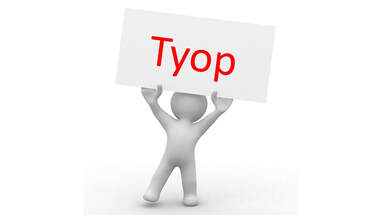 But I’m not talking about an error every third or fourth page, or every second page or even every page. I am talking about an error in every paragraph and sometimes more than one. There are punctuation errors, typos and the use of the wrong homonyms. In some cases, the errors are so bad they change the meaning of a sentence. To give one example, in an historical note the author uses the word ‘temerity’ when it is quite clear he means ‘tenacity’. Sentences have to be read twice or three times to decipher them because a lack of punctuation means they can be interpreted in more than one way and it is hard to work out which way the author actually meant us to interpret them.. So much for proof-reading. But it doesn’t stop there, because the editing or, more likely, the lack of editing makes the books difficult to read and impacts on the entertainment value.  In Book 1, so little happens in the early chapters that I was thinking of giving up reading the book out of boredom. It made me wonder how many readers had used the ‘look inside’ feature on Amazon and done just that, passing the book by to go and look for something that grabbed their interest a bit quicker. And it is a shame if they did that because, as I said above, the stories are quite good if you can just get passed these issues. Later, some of the descriptive passages become repetitive or rambling. In some places the paragraphs make it hard to follow the plot and in other instances the paragraphs don’t make sense. "And now we get to the moral of this story " To give another example to illustrate my point about the editing, at one point the author describes the light fading – when it was dawn and the light would be increasing. He probably meant that the darkness was lessening, or that the light was improving, but that’s not what he wrote. It’s the sort of thing an editor would point out and which is easy to correct. And now we get to the moral of this story and the reason I hope you Indie authors have read this far. Because these books deserve to be best-sellers but will never become so. The poor editing and proofreading make them appear amateurish. 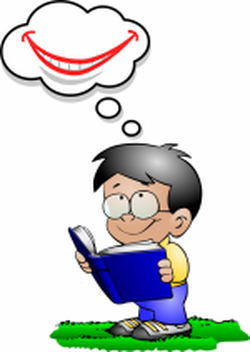 Now we come to a question that you might like to answer. How would your books stand up by comparison? Are you sabotaging yourself because you aren’t a good editor or proof-reader? It is entirely possible that you are if you aren’t getting other people to cast their eyes over your work. Both editing and proof reading take time, we know. And anything that takes time usually costs money if we want someone else to do it for us. So, how do we avoid the sort of mistakes that I have described above, but without it costing us anything?  You are not alone You are not alone This is where the ‘writing community’ can help. We can buddy up and look at each other’s work and tell the author which bits work for us and which bits don’t. At the very least we can spot the typos, punctuation errors and incorrect homonyms that I referred to earlier. And, best of all, we get to read a free book as well. If we are doing things properly, then we will be editing and proofreading our own work anyway, so all we would be doing would be expending the same amount of time doing it for someone else, while they do ours. It costs us no more time than it was going to cost us anyway. Here at Selfishgenie Publishing we have a golden rule that no book is published until it has been read at least 4 times by a minimum of two different people (that’s twice each, not 4 times each). If anything slips through the net after that, then at least we have done our best to prevent it. And if you weren’t going to edit and proofread your own work – well, you may want to read this blog again and see if there is anything you may wish to reconsider. If, by any chance, the author of the books I have referred to is reading this and recognises my references, please feel free to contact me (use the general enquiries email address given on our ‘contact’ page) and I’ll be happy to offer some feedback on the work. There is still the opportunity to withdraw these books from sale, sort them out and turn them into the best-sellers they could be. If you have enjoyed this blog and want to be sure not to miss future posts, why not sign up to our newsletter? And if you do, we'll send you a free eBook. Just click the button below to find out more. Just a reminder, we are open for submissions of new work. Just check out our contacts page for more information.
 All Indie authors need an advertising budget. There, I’ve said it. You may not want to read that and you may now be sticking your fingers in your ears and going “la la la”, but I’m afraid it’s true. Let’s start from basics. Nobody is going to stumble on your book by accident. It may be the best book ever written, but if nobody knows it exists then they can’t read it. 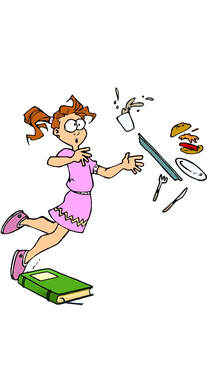 Nobody is going to stumble on your book by accident! Nobody is going to stumble on your book by accident! You will be aware that social media can be used to bring your book to the attention of a wider audience for free, but it has a limited utility. Once your post or Tweet about your book has been read by your “friends” or “followers” they will do one of two things. They will either buy the book (hooray) or they will ignore it (boo). After that, no matter how often you post or Tweet about your book, nothing will happen. The people who bought your book when they first saw the post aren’t going to buy it again and the people who ignored it first time around are going to continue to ignore it. This means you have to keep finding new “friends” and/or “followers” who haven’t previously seen your message and who will either buy your book or ignore it. And finding those people is a relentless slog which takes up more and more of your time. And your time is valuable. You should be spending your time writing new books, not trawling through social media trying to attract new people.  Which is where advertising comes in. There is a thing in commerce called “spend to save”. The basic principle is that if you spend money now on certain things, you will save money in the longer term. For example, if you spend £1,000 on replacing your existing light bulbs with more energy efficient light bulbs, you will save more than £1,000 over the next five years, thus repaying the initial outlay and making a profit. This is also known as “return on investment” (ROI). The same principle applies in advertising, though here you might call it “spend to earn”. If you spend £x on advertising now, you will earn £y back in sales, so the advertising cost is paid back and you get your ROI. This is something that is well understood across business. If advertising didn’t pay for itself, then all those adverts that we see on-line, on TV, in the cinema and that we hear on the radio, just wouldn’t be there. Advertising has to pay for itself or or nobody would do it.  But you are an Indie author. You don’t have much money. How can you possibly afford to advertise? Fortunately, the same social media we used to promote our book for free, also offers the facility to advertise that isn’t expensive. You may have 5,000 followers on Twitter, but a paid advertisement has the potential to reach millions of people. The same applies to Facebook and to all the other forms of social media. It even works by paying for advertising on Amazon. There are some good practices that should be born in mind if you are going to advertise and I’ll touch on these now. We have covered most of them in previous blogs, so we won’t go into detail here. 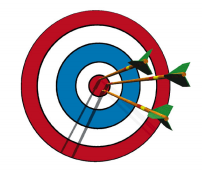 Target your audience. Make sure the advert is aimed at the right people. There’s no point in paying for your book to be promoted to people who don’t read books or who don’t read books in your genre. Time your advertising. Not everyone is on social media 24/7, so find out when your audience is likely to be on-line and time your advertising accordingly. Change your message. People get annoyed by repetition, so each advert should be different from the one before. This will require you to be creative – but you’re an author, you are already creative. Make your adverts eye-catching. People are more attracted to pictures than to words and they are more attracted to moving pictures than to still ones.  Think long-term. Every new reader that you attract with an advert is likely to stay loyal if they enjoy your book. So that’s a sale in the bag for your next book and all the others you are going to write – and you won’t have to pay for those sales. Save to spend. Set aside money from each sale to help pay for your next advert. I would recommend 10% minimum from the income from each sale. 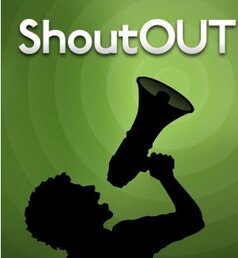 You shouldn’t waste money on those businesses (mainly on Twitter) who offer to promote your book to their gazillion followers. Their output isn’t targeted and there is very little evidence that it produces results. You might as well stand in the street with a megaphone shouting “buy my book”. In fact, you’d probably get more sales that way (along with a restraining order). How much should you spend? Well, a Facebook advert running for 4 days will cost about £25 ($30) and that should return you enough sales to justify the cost. Other social media channels and Amazon offer similar levels of pricing. How often should you advertise? As often as you can afford it. I would suggest at least one advert per month and if you can’t afford that, try for one very two months. Have I convinced you? If not, then there is only one thing that will. Give it a try, just once, and see what happens. Experience costs money, but for some people it is the only way they will be convinced. But, let’s face it, if your book isn’t selling, then doing nothing isn’t really an option if you want that to change. If you have enjoyed this blog or found it interesting, make sure you don't miss the next edition by signing up for our newsletter. If you do, you can get a full length novel for FREE. Just hit the button. 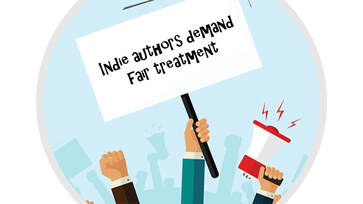 There is a subtle prejudice against Indie authors that isn’t present in other forms of creativity. I’m not talking about the big prejudices, like those involving race, religion, gender, sexuality etc. I wouldn’t want to lump this in with those as it doesn’t have the same sort of impact on those who suffer. No, I’m just using the word in its original meaning, which is to ‘pre-judge’. In other words, to make assumptions that aren’t based on any real evidence. That happens with the big prejudices in a big way and is more far reaching. Pre-judging an Indie author probably won’t affect their ability to earn a living, get housing or fair treatment by the police, so it isn’t in the same league. But it matters to the Indie authors, all the same. Indie authors are prejudged in a way that no other art form appears to be.  Imagine you are walking along the street and see a sign outside a pub. It says “Appearing here tonight, Fred Bloggs, musician. Entry £5.” Would you consider parting with a fiver to see him perform? There might be some questions you would want to ask, such as what sort of music Fred plays and what price the beer is at the bar, but I think a great many people would take a chance and part with their fiver. Or maybe if it said “Comedian Fred Bloggs.” Again, you might have a few questions, but you might well decide to go along. You would give Fred Bloggs a chance. 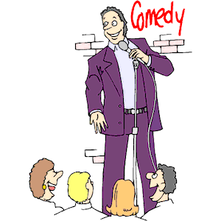 What you probably wouldn’t say is “Fred Bloggs has never had a hit record, so I’m not going.” Or “Fred Bloggs has never appeared on Live At The Apollo (a TV comedy showcase in the UK) so he can’t be very funny.” In other words, you wouldn’t pre-judge Fred Bloggs. If his music or comedy style was to your taste, you might well take a chance and buy a ticket, even though you had never heard of him. But when presented with a book by an Indie author, how many people say “He (or she) hasn’t had a best seller, so they can’t be very good, so I’m not going to part with my money.” Because that seems to be what happens to Indie authors with monotonous regularity. People will pay £5 to hear an unknown singer in a pub, but they won’t pay the same amount to read an unknown author.  Being judged by different standards Being judged by different standards For some reason, authors are judged by different standards to other creative artists. So, what is the difference? It is something of a mystery to us here at Selfishgenie Publishing, as I’m sure it is to all those Indie authors who are reading this right now. Is there an answer to this? Only in the form of a Catch-22 type scenario. You will sell more books when you become famous, but to become famous you first have to sell more books. 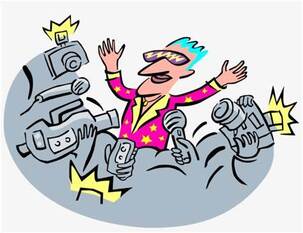 Celebrity Author Celebrity Author It is sickening to see many famous people with limited writing talent getting ‘their’ books published just because of their name. The publishers know that the book will sell because of the name on the cover, so they’ll hire a ghost writer to make the book readable. That’s not to say all celebrity authors are bad. I’ve read a few that were pretty good (Richard Osman, to name but one). But we know that a footballer or reality TV ‘star’ who can barely string 3 words together to form a meaningful sentence, isn’t going to be capable of writing War And Peace. But there is one thing all the Indie authors can do to support each other – and I don’t mean doing all those annoying #writerslift thingies.  #WritingCommunity - support Indie Authors! #WritingCommunity - support Indie Authors! Just pick one Indie author a month and buy their book, then post reviews on all the relevant sites. You don’t have to go on Twitter to ask for recommendations - most of those are just people trying to boost their follower numbers anyway. No, all you have to do is quietly browse through the profiles of your own followers who are authors and see what sorts of books they write. If they are in the genre you read, buy a copy. If not, move on to someone else. There’s no need to make a big deal of it; no need to Tweet them to say ‘I bought your book’ - that looks like you are looking for thanks and sounds needy. It may even be interpreted as a suggestion that they buy your book in return, which isn't what is intended. But if you post a review, you could Tweet the link to that so other people know how good the book is and may be encouraged to buy it. We often use the hashtag #WritingCommunity, so let’s act like a community and support each other, not through words alone, but also through deeds. And the best present you can give an Indie author is to buy one of their books. And if you are looking for a place to start, then you are already on a suitable website. Just click the Books tab at the top of the page. If you have enjoyed this blog and don't want to miss the next edition, be sure to sign up for our newsletter. We'll be so grateful, we'll even send you a free ebook. Just click the button below. 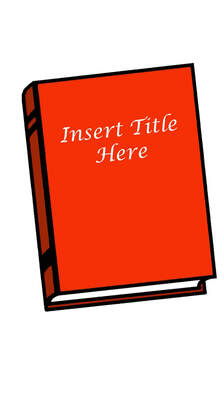 Picking a title for a book isn’t always easy. Sometimes the title picks itself, based on the plot or the leading character. But sometimes it isn’t quite so obvious. “Oranges Are Not The Only Fruit” by Janet Winterson, for example, isn’t a title that you might associate with a book about “religious excess and human obsession”, to quote from the book’s blurb. But it’s a best seller, so its readers obviously weren’t the type to be put off by an opaque title. However, is there more to it than just a having snappy title? What if you are publishing a collection of work that has been previously published. This happened to one of our authors, Robert Cubitt. 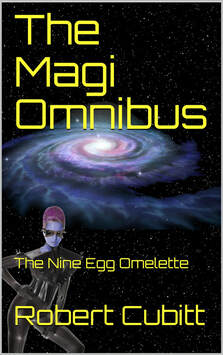 He had published a series of nine sci-fi novels under nine different titles, but the series collection was called, simply, “The Magi”. If anyone has read the book then that title makes sense, because the series is all about the search for the Magi, who are the rulers of the galaxy and they’ve gone missing. So far, so good. Each book in the series has its own title, but the first book gives the series its collective name. But what do you call the collection when you put all 9 books out under a single cover? Robert chose to call it “The Magi Omnibus”. It made sense to him, because an omnibus, as well as being a mode of transport, is a collection of stories either with a common theme or by the same author. So, tick the box on both counts. For the same reason the title also made sense to us. "sales started to tick upwards at once" But it turns out that not everyone seems to know that the word omnibus means a collection of work. The word has become old-fashioned, out of date. It also doesn’t resonate with non-UK readers. Robert’s generation grew up on the omnibus edition of “The Archers” broadcast on the radio every Sunday morning, which is all 5 daily episodes, each of 15 minutes duration, broadcast as a single 75 minute edition. There are also omnibus editions of some TV soap operas, such as Eastenders and Coronation Street. So, you would think that the term omnibus would be well known.  It appears we were wrong about that. While we weren’t looking, the omnibus has been replaced by the “box set”. And that was reflected in our sales for the collection. We were getting plenty of clicks on links to the book’s sales pages, but no buyers. We can only assume that potential purchasers were confused by the title, thinking it referred to the aforementioned mode of transport. So, we retitled it as “The Magi Box Set” to see what would happen. And sales started to tick upwards at once. It seems that the readers of sci-fi are happy to buy a box set, but they aren’t interested in buying an omnibus.  OK, lesson learnt. A title change can make all the difference in the world for some books. So, if your book isn’t selling, you might want to ask yourself what the title is saying to your potential readers. Ours was obviously saying “Radio 4” when we wanted it to say SYFY Channel or Netflix. This isn’t a phenomenon that is unique to the publishing industry. Plenty of films have been retitled because the original title didn’t go down well with test audiences, either at home or abroad. I’ll give you an example. The film “The Madness George III” was retitled “The Madness of King George” for the American market, because the producers thought that with so many films being released in series (eg Rocky, Rocky II, Rocky III etc), audiences might not go to see the film because they might think they’d missed The Madness of George I and II. Mad Max is a well-known film name these days, but very few people in the USA had seen the first film in the series, so when the second film was released in the USA it had a name change to “The Road Warrior” without any reference to Mad Max – and it worked  Will Smith in "Hancock" Will Smith in "Hancock" You may be familiar with “Indiana Jones and the Raiders of the Lost Ark” and if you are, you didn’t see it when it was originally released – or your memory is playing tricks on you. When it was released in 1981, it was just “Raiders of the Lost Ark” and was retitled later by George Lucas in order to fit in with the titling of the sequels, which did use the style “Indian Jones and ….” The Will Smith superhero movie “Hancock” (2008) didn’t start out with that name. It had the very generic title of “Tonight He Comes”. Would you have gone to see it with that title? It might have worked in the 1930s, but not in the modern market. So, if your book isn’t setting the reading world on fire, you might consider a change of title. But do include a note inside giving the original title, so people will know if they have already read it. No point in upsetting people by letting them buy the same book twice. Amazon gets a bit touchy about that too. Would you like a full-length eBook for free?* Of course you would. All you have to do is sign up for our newsletter to qualify. Just click the button. *Excludes "The Magi Box Set".  We started a free book giveaway yesterday, which prompted one of our team on the Zoom call (we don’t have an office – it helps keep costs down) to ask if free giveaways actually work. Which is a very good question. By the way, if you didn’t know about the free book, it just shows the value of signing up for our newsletter – but that’s another issue. We know that people like to get something for nothing, but that isn’t why we give away free books. No, we give books away in the hope that the enjoyment the readers get from it will encourage them to buy more books by the same author. But you knew that already. What you really want to know is if it works or not. Which is a very … sorry, we’ve said that once.  One of our authors One of our authors The answer is that there is no short answer. We can’t point our finger at the work of one of our authors and say “Because we gave away one of his books for free, we then sold more by him” (or her as the case may be). There are some people who do free book giveaways in order to generate lists of email addresses they can use for marketing - you have to email a certain address to get your free copy. We don't do that. We think it's a little bit underhand. When we do a free book giveaway it is always done through one of the etailing sites so that we don't know the email address of the beneficiary. Or we allow a direct download from this website, for which you don't have to provide an email address. (see our "Freestuff" tab to find out what's on offer) But to get back to the point, let’s take this from first principles. If you are trying to get people to buy more books by the same author, then it follows that they must have more than one book available. So, for first time authors, this isn’t going to do them much good. You may think that is stating the obvious, but it is amazing how many first-time authors do free giveaways in the hope of stimulating sales. Just goes to show how hope can delude people sometimes. 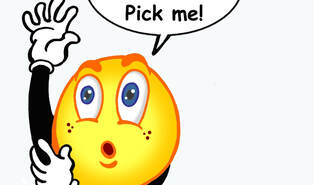 “But it will get my name noticed.” Some authors will reply. No, it won’t. Your name will only be noticed by people who take a free copy of your book. OK, they may come back for your next book, but you haven’t even published that yet, so by the time you do, your name will probably have been forgotten again. For authors who have multiple, but disparate, titles it is hard to see a connection between the sales of titles that have no connection to the one given away for free, ie books that are about different groups of characters, even if they are in the same genre. If you track your sales and there is a sudden surge of interest in some titles, then it does suggest that the free giveaway had some influence. But if the change in sales is less dramatic it could just mean that some new readers have discovered your books and it has nothing to do with the free giveaway. Indeed, the new readers may not even have read the free book and might buy it later if they like the ones they have bought.  It is in sales of books that are written as a series that we see the greatest effect of free giveaways. If it is Book 1 of the series that is given away (which is the sensible way of doing things) then we know that Books 2, 3 etc are probably going to increase their sales if the readers of Book 1 enjoyed it. So, if you are an author that writes a series, then this is something worthy of your consideration. What about books written as ‘tasters’ – stories that are less than full length books which are given away as an introduction to the series. These are usually a prequel, but they don’t have to be. 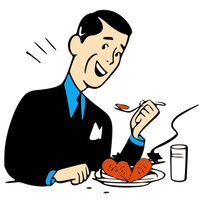 I have to say we have seen very little evidence that those justify the amount of work that is invested in them. If you know differently, then do get in touch and tell us. There are a couple of issues with tasters. The first is the amount of time they take to write. Every author has some idea of how long it takes them to write a full-length novel, but does writing a half-length ‘taster’ story take half the time? Does it take less, or does it take more? And we all know that Benjamin Franklyn said that “Time is money.” Are you going to generate enough sales of your taster to make it worth the investment of time that you have made in the writing of it? You hope you will, of course, but I’ve already mentioned how hope can delude us. 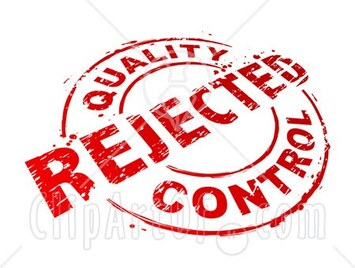 The other issue is quality. I have read some taster novels which are nowhere near as good as the books they seek to promote. Perhaps it’s a psychological thing and the author subconsciously doesn’t try so hard to write a good story for a work they know is going to be given away for free. And if the taster isn’t good enough, it isn’t going to encourage sales of the full price book. That doesn’t apply to all tasters, of course. I have also read some that are brilliant and a good advertisement for their product. It just isn’t a universal truth. But is it enough just to give the book away for free? Should you do more? Yes, you should. 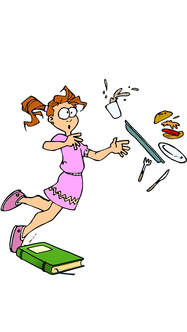 As with all books, readers aren’t going to stumble across your free book by accident. OK, most book etailing sites maintain lists of their free books, so your offering will appear there. But it isn’t the marketing channel you need to appear in. The sorts of readers who haunt the listings of free books are the sort who want to read, but don’t want to buy books. Yes, they’ll download your book because it is free, but there is a good chance they won’t come back and buy the ones they would have to pay for. They’ll be back browsing the lists of free books, looking for their next read No, you need to entice the book buying public, not the freebie lovers. And that means promoting the fact that you have a freebie on offer which they might consider looking at. Those are the readers who will buy Book2, 3 etc of the series. You may also get some reviews, which always help sales. So wherever and however you promote your books, that is where you also have to promote your free offer. You may even have to invest in advertising. 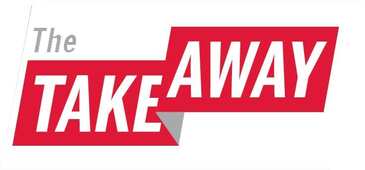 I know it sounds insane to spend money in order to give something away for free, but it does work. Thousands of businesses pay to advertise free and ‘buy-one-get-one-free’ offers and they wouldn’t spend the money if it didn’t work. You need to think of this as a long-term strategy. Yes, it may cost you £50 to run a Facebook advert for your free book, but if you get enough sales of the rest of the books in the series, the cost of that advert could be repaid many times over. So, for those of you who are considering doing a free giveaway, the key points to take away from this blog:
 And if you are reading this before midnight on 31st October, you can still get “Operation Absolom” by Robert Cubitt for free. Just click the cover image to find out more. If you have enjoyed this blog or found it informative, why not sign up for our newsletter. At least, that way, you won't miss out on our next free offer. Just click on the button below.  Many an “Indie” author will tell you that the hard part of being an author isn’t the writing of the book, no matter how hard that seemed at the time. No, the hard part is actually selling the book to readers. Let’s face it, it doesn’t matter how good the book is, if no one knows it exists then they can’t buy it. Readers rarely, if ever, just stumble across a new author’s work. It may occasionally appear on Amazon under the heading of ‘People who bought …. Also bought …..” but that is the equivalent of hoping to hit a fish by throwing a stone into the sea. OK, theoretically you could, but it’s unlikely you will.  Do not confuse marketing with advertising, because advertising is just a small part of the marketing mix which we will discuss later in this blog. It is covered under the P for promotion part of the mix, but even then it is quite a minor part. Back at the beginning of this year we published a series of blogs that discussed marketing in depth. If you want to read the whole series then look under February in the archive and scroll down to the bottom of the page to start at the beginning. Don’t be confused by the fact that the first blog is Week 5 – the first 4 weeks were looking at the dark arts of publishing. The series continues into March and April But before you go and look at the archive, we’re going to reprise some of the highlights of those blogs to give you a few things to think about. Call them the ‘key messages’.  We’ll start with the marketing mix – the 6 Ps. Some marketing blogs talk about the 4Ps, but we’re a bit like Spinal Tap, our Ps go all the way up to 6 (Younger readers may not get that reference). These are:
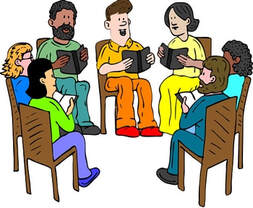 The most important P is people The most important P is people You might think that ’promotion’ is the most important part of the marketing mix, but it isn’t. It’s people. You can 'promote' your ‘product’ as much as you like, but if you aren’t reaching the right people, then you are wasting your time and, probably, your money. Your ‘people’ are the people who read books similar to the ones you write. They are the ones you need to identify and engage with on social media. I say ‘engage’, because if you just ‘promote’ you will lose their interest very quickly. Yes, you can promote, but only as a small part of engagement. You need people to want to follow you, which means having something interesting to say. And if you doubt that, consider this – you’re reading this blog, aren’t you? That is part of our ‘engagement’ with you. Maybe, as a consequence of our engagement, you might take a look at the ‘Books’ page of our website to see what we have to offer – or maybe you won’t. The choice is yours, but the important thing is that you are here, which makes the choice easier.  Paying companies to blast out Tweets about your book won’t get you sales -despite their promises of having a gazillion followers. Because only the Tweets (or other social media posts) that reach the sort of people that read your sort of books are of any use and only you can identify and engage with those people. Just as an aside – doing a #writerslift on Twitter isn’t engagement, it is just becoming increasingly annoying because so many people are doing those. And everyone in the list replying to it and filling up notification boxes is even more annoying. We’ve started blocking all the people who do it. We’ll assume from the start that your book is well written, has a good plot, interesting characters, has been properly edited, proofread and corrected. It is therefore fit for purpose. Only you and your Beta Readers can judge that. So that part of the next P, ‘product’, is OK.  After that the most important part of the product is the cover. Despite the warning in the old proverb, people do judge books by their covers. So, yours must be right for your genre. The cover image is what is going to attract people’s attention, so it has to be eye catching and genre appropriate. A picture of a woman in a big bonnet walking through a field of daisies isn’t going to sell many sci-fi books. The second thing about the cover is that it should tell the reader a little bit about what is happening in between the covers. Call it a visual representation of the plot. A picture is worth a thousand words, or so they say, so make sure that the picture on your cover is using those thousand words to best effect. Here’s one of ours which, we think, tells you a lot about the plot. 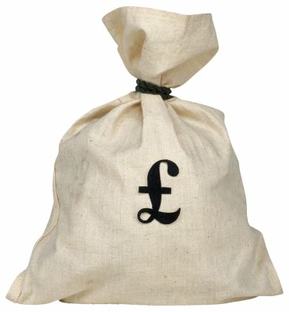 What about price? How much should you charge for your book? If you are a big-name author, you (or, more likely, your publisher) can get away with charging £12.99 ($14.99) for your book. If you are an unknown or Indie author, don’t even think about it. There is some interesting psychology related to pricing. On the one hand, people expect to pay more for a quality product. On the other hand, everyone loves a bargain, even readers. Where you pitch the price of your book is therefore important. Price it an 99p (99c) and readers may think ‘It can’t be very good if they’re practically giving it away’. On the other hand, price it at £12.99 and readers may say ‘I’m not going to pay that much to read a book by an author I’ve never heard of’. We price our ebooks at £4.99 ($5.99) and that seems to be about right for us. But the key messages are (a) don’t undersell yourself and (b) don’t price yourself out of the market. 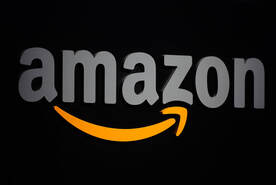 When we talk about ‘place’ we mean the places where you promote your books rather than the places you sell them. We’re going to assume that your book is listed on all the relevant ebook etailing sites and, for those of you that don’t want to give money to Geoff Bezos, all we can say is that if you aren’t on Amazon, you aren’t anywhere. Internet searches always place Amazon at the top of the results, so if someone is actually trying to find your book, that is where it will appear first – and perhaps the only place on the first page of results. Amazon's Kindle Direct Publishing offshoot also allows you to publish in paperback without paying expensive set-up charges or buying a minimum number of copies. But in our terms, place means your choice of social media site(s) on which to engage with readers and promote your work and your choice is important.  If you want to reach young people, then Facebook isn’t the place and Twitter is iffy at best, because young people are always on the newest, trendiest platforms. Only 51% of social media users between ages 12 and 18 use Facebook – the second smallest group. So you need to do some basic research to make sure the platform(s) you are using are the right ones to reach your target audience. But don’t rely on social media alone. Local newspapers and radio stations are always looking for content, so a short item (written by you) will fill some column inches for them or an interview will fill five minutes of radio time. But, again, don’t expect them to find you. You have to reach out to them. Also, check your local community resources (libraries, schools, colleges churches, clubs, societies, etc) for events where you can go along and talk about your work (and maybe sell a few copies).  Promotion can be anything from a Tweet or Facebook post to a video, podcast, a free extract or paid for advertising. I don’t aim to cover all of those. Instead I’ll focus on the one that you have to pay for – advertising. Social media has given us all the ability to run relatively cheap advertising campaigns – but which ones work and which don’t? Ask us a question that we can answer. Because, again, it depends on the advertising channel you use. There is no point in paying for and advert on Facebook if hardly any of your target audience ever uses Facebook. We can tell you where we get the best return on our advertising budget – but that would be more confusing because we use different platforms for different books, because different audiences use different social media platforms. What we can tell you is that spending money on Amazon doesn’t seem to work for us. We don’t know why that is, but we have had very little success there. Other publishers and authors tell us that they have had significant success using Amazon, so we can’t explain it. But one important detail about advertising. Makes sure your advert includes the following:
 You’re now wondering what I’m going to say about ‘process’. Actually, not a lot. I’ve tried to get the messages in this blog in the order you need to address them. That’s about all the ‘process’ you need to worry about. But if you want to be successful your ‘process’ must also include research:
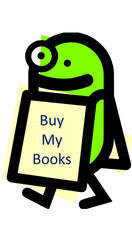 Without that research, you may as well be standing on a street corner shouting ‘buy my book’. And you will be no more successful. And, if doing research sounds like too much hassle, then good luck getting people to stumble across your book by chance. If you have found this blog informative or entertaining (or both) then make sure not to miss future editions by signing up for our newsletter. Just click on the button below. |
AuthorThis blog is compiled and curated by the Selfishgenie publishing team. Archives
March 2025
|
 RSS Feed
RSS Feed